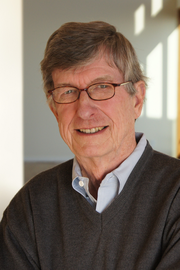
The Cellular and Molecular Basis of Synaptic Plasticity
Dr. Nicoll’s lab is interested in elucidating the cellular and molecular mechanisms underlying learning and memory in the mammalian brain. Long-term potentiation (LTP), a phenomenon in which brief repetitive activity causes a long lasting (many weeks) enhancement in the strength of synaptic transmission, is generally accepted to be a key cellular substrate for learning and memory. The lab uses a combination of electrophysiological and molecular techniques to elucidate the molecular basis of LTP. It has found that LTP involves the rapid activity-dependent trafficking of glutamate receptors to the synapse. This trafficking requires the interaction of two families of synaptic proteins. One family is a novel group of proteins that, the Nicoll’s lab discovered, bind to glutamate receptors and act as auxiliary subunits. These proteins are not only essential for the trafficking of the glutamate receptors, but also control the gating of the receptor channel. The other family is comprised of a family of scaffolding proteins that bind to the auxiliary subunits and thereby anchor the receptors at the synapse. Much of the current work in the lab is focused on how activity controls this receptor trafficking and how the increase in synaptic strength during LTP is stabilized and maintained.
Source: https://neurograd.ucsf.edu/people/roger-nicoll-md